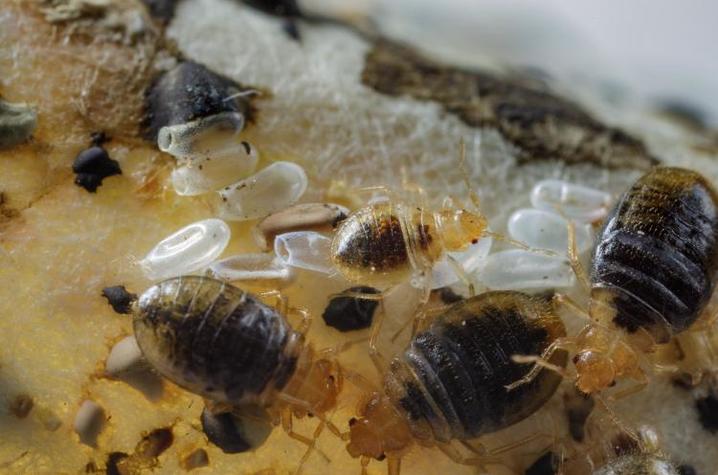UK Entomologists: Human Skin Lipids Repel Bed Bugs

LEXINGTON, Ky. (Dec. 9, 2021) — University of Kentucky entomology researchers have found that skin triglycerides, or lipids, keep bed bugs from staying very long on human hosts. Their finding could lead to new management strategies for this important human pest.
“We already knew that human body odors, carbon dioxide and warmth attract bed bugs to feed on people. Our latest research shows the reason they do not stay on humans like other pests, such as lice, is due to lipids or triglycerides in our skin that cause them to leave their hosts and hide in nearby locations, such as beds and mattresses,” said Zach DeVries, assistant professor of urban entomology with the UK College of Agriculture, Food and Environment.
DeVries and Sudip Gaire, UK postdoctoral scholar, tested this latest finding by rubbing a strip of filter paper on participants’ skin to collect samples. Research participants represented numerous ages and ethnicities. They also tested the theory on multiple populations of bed bugs raised in the lab and collected in the field.
“Our findings were consistent across all triglyceride types, all participant groups and all bed bug populations,” DeVries said. “Bed bugs nearly always preferred the control filter strip to the one containing skin triglycerides.”
“The bed bugs do not like to sit on skin triglycerides and refuse to stay on surfaces that contain triglycerides,” Gaire said. “We got tremendous results by using only a small amount of triglycerides.”
While further research is needed to explore why bed bugs do not like the triglycerides and if there are other potential bed bug repellents in human skin, DeVries and Gaire think this could be an important beginning to more effective bed bug control.
“There may be several potential management opportunities from our finding,” DeVries said. “It’s possible that our findings could be used to deter bed bugs from hitchhiking on people’s belongings, thus reducing their spread.”
The findings were first reported in Scientific Reports. The full research paper is available online at www.nature.com/articles/s41598-021-01981-1.
Additional researchers in the study include Russell Mick, Richard Santangelo and Coby Schal from North Carolina State University, and Grazia Bottillo and Emanuela Camera from the San Gallicano Dermatological Institute in Rome, Italy.
The researchers were funded by grants UK received from the U.S. Department of Housing and Urban Development and National Institutes of Health and grants North Carolina State University received from the National Science Foundation, U.S. Department of the Army, U.S. Department of Housing and Urban Development and the Blanton J. Whitmore Endowment.
Research reported in this publication was supported by the U.S. Department of Housing and Urban Development as part of an award KYHHU0061-20 totaling $400,000, 100% of which was funded by HUD.
Research reported in this publication was supported by the Office of the Director of the National Institutes of Health under Award Number DP5OD028155. The content is solely the responsibility of the authors and does not necessarily represent the official views of the National Institutes of Health.
As the state’s flagship, land-grant institution, the University of Kentucky exists to advance the Commonwealth. We do that by preparing the next generation of leaders — placing students at the heart of everything we do — and transforming the lives of Kentuckians through education, research and creative work, service and health care. We pride ourselves on being a catalyst for breakthroughs and a force for healing, a place where ingenuity unfolds. It's all made possible by our people — visionaries, disruptors and pioneers — who make up 200 academic programs, a $476.5 million research and development enterprise and a world-class medical center, all on one campus.




